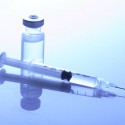How Many Calories Should You Eat Per Day To Lose Weight
Are you struggling with your weight?
If you are already at that point, I am sure you desperately want to lose that extra weight. True?
If you are figuring out how you can manage your calorie intake to make that happen effectively, you are on the right page.
Here are some vital facts you should understand about losing weight by managing calorie intake:
- You must know your daily estimated calorie maintenance level (1).
- You must also learn to create a caloric deficit, that is, have a calorie intake that is below your maintenance level.
- When you maintain the calories deficit, you will lose weight effectively.
With this knowledge in mind let us now figure out the number of calories you should take per day to lose weight.
But just before then,
What are Calories
A calorie is a unit of measurement for energy (2).
When we talk of calories in foods we mean the amount of energy the body will get when we eat or drink it.
Your body needs the energy to sustain its essential functions and day-to-day activities, this energy is acquired from food.
The calories in food can be equated to the amount of potential energy the food possesses.
For instance, one gram of carbohydrate contains 4 calories, one gram of fat contains 9 calories and one gram of protein contains 4 calories.
These are the three building blocks of the food we eat.
Therefore, you can easily estimate the number of calories in a given food if you know the number of carbohydrates, fats, and proteins it contains.
NB: Food calories that are listed on all food packages are usually in kilocalories.
For example, if soda has 200 calories, it means if you drink the soda, you will get 200,000 calories.
Nowadays, it is very easy to estimate your calories needs using calculators which can be found on various online platforms.
There are also many calories apps and websites which are very helpful in determining the number of calories in the foods you eat.
These apps are available online for android or iPhone/iPad devices.
In order to get the best result from these counters to use a specific calculator for a number of days as this is the only way to truly know the number of calories, fat, carbs, fiber, proteins, minerals, and vitamins you are consuming.
Getting a rough estimate of your calories intake will be an eye-opener to knowing the number of calories you should consume to lose weight.
How Many Calories Should You Eat On Average
The number of calories you should eat to maintain or lose weight depends on various factors.
Some of the factors include your current weight, age, activity level, metabolic level, height, and several others.
On average a man requires 2000 calories per day to lose a pound of weight in a week and about 2500 calories to maintain his current weight.
A woman will require 1500 calories per day to lose a pound of weight in a week and 2000 calories to maintain.
What Level of Calories Deficit is Ideal for Effective Weight Loss
You already know that to lose weight you need to create a calorie deficit, that is, burn more calories than you are taking in.
An ideal level of calories deficit should help,
- Maximize weight and fat loss.
- Minimize muscle loss.
- Above all the level should be easily doable and sustainable.
There are three levels of calories deficit, and each has its own advantages and disadvantages.
Small Calorie Deficit
This is the easiest deficit in terms of sustainability, it requires a small reduction in calories and calls for a few dietary changes.
Its advantages include few problems with hunger and moods, little or no impact on recovery and training (helps minimize muscle loss), and less metabolic problems.
The only drawback to this level is that your weight loss will be at its lowest rate.
This is simply because the rate at which you lose weight is directly proportional to the level of calorie deficit created.
Most people would want to lose weight as fast as possible, and hence find this level, not a perfect fit.
Large Calorie Deficit
As the name suggests, this is a level where the rate of losing weight is at its highest.
If you are looking to lose weight you will find this to be the most appealing level.
But wait, are you aware of its cons? Actually, the only advantage to this level is losing weight at a faster rate.
The level comes with numerous disadvantages which include:
- This level requires a huge calorie reduction making it’s the most difficult to sustain. You will have a lot of problems with hunger and moods, and your metabolic activities will be affected negatively.
- Creating a large deficit will also impact negatively on your training and recovery. This will cause you problems and thrust the rate of muscle loss to its highest.
Therefore, if your daily calorie intake is reduced by too much, it will be difficult or impossible to achieve successful weight loss.
Moderate Calorie Deficit
This is an ideal level for a successful weight loss.
It is the level between the other two extremes where you reap maximum benefits while reducing all potential drawback.
By maintaining a moderate calorie deficit you will maximize weight loss and minimize muscle loss.
Above all, you will be able to maintain this level in a sustainable, fast, easy and enjoyable way.
TAKEAWAY: An ideal recommendation of a moderate deficit is staying 20% below your daily calorie maintenance level.
A percentage based calories deficit is the best way to create the perfect deficit for each person.
It ensures the deficit created is the perfect match for the ‘fatness’ of the person initiating it.
This because a percentage-based calorie deficit depends on the calorie maintenance level of each person.
Therefore, the deficit created by that particular person will be directly proportional to the weight they need to lose, hence their rate of weight loss will also be directly proportional.
Best Ways to Create a Calorie Deficit without Starving
To lose weight more calories must leave your body than they enter it.
This saying is easier said than done, and you must adopt effective dietary plans to actualize it.
The most effective diet plans will help you to reduce your calorie intake with regard to the food you are eating.
If you disregard the food you are eating you will end up feeling hungry and you will ultimately give up on your weight loss goals.
On the other hand, you don’t need to starve yourself in the name of losing weight.
You can maintain a reasonable deficit by making a few dietary or lifestyle changes that will help you achieve your goal.
If you are looking to lose weight effectively, here are five helpful, evidence-based methods you must try.
Eat More Proteins
Numerous studies have shown that eating more proteins cuts cravings by 60%, reduce appetite and helps your body to burn more calories (3).
Protein is very vital and ranks as the best nutrients in terms of weight management.
One fascinating thing is that it is easy to add proteins to your food, making it one of the most delicious and effective methods of losing weight with less hustle.
Proteins increase the number of calories your body burns and this is how.
Proteins require a lot of energy to metabolize, therefore when you take a diet with high protein content, the body will require more energy.
This will mean burning more calories by the body to release enough energy that can sustain this metabolic process.
It is estimated that a high-protein diet increases the number of calories burned by 80-100 calories in a day (4, 5, 6).
Eating more protein will make you feel full for long.
According to one study (7), a high-protein diet reduces your appetite thereby decreasing your calorie intake.
According to this study people who increased intake of proteins from 15% to 30% and sustained a constant carbohydrates intake, had a significant decrease in their calorie intake (about 441 fewer calories in a day).
If you have tried losing weight you must attest to the fact that cravings are your worst enemy.
Eating more proteins will help you fight these cravings.
A study showed that a 25% increase in protein intake reduced cravings by about 60% (8).
Bottom line: increasing the amount of protein in your diet will not only help you lose weight with minimal hustle but also curb weight regain just in case you achieve your weight loss goals.
Avoid Sugary Beverages
Soft drinks and fruit juices are considered to be the most fattening drinks in the modern diet.
These drinks contain liquid sugar calorie which is not recorded by the brain in the same way as the solid calories.
Because of this, when you drink sugary drinks your brain will not automatically spark the desire to eat less of other food (9, 10).
A number of studies have shown that drinking sugary sodas increase the risk of obesity.
One of the studies showed that daily serving of these drinks will increase the risk by a whopping 60% (11).
Besides having detrimental effects on weight management, these sugars also affect your metabolic health (12) and increase the risk of many other diseases.
Bottom line: there is no physiological benefit associated with these drinks and avoiding them will bring you enormous long-term benefits.
Exercise
Taking part in regular exercise will be essential in your quest to lose weight and manage your calories deficit.
You are already aware that when you decrease your calorie intake, your body responds by burning less.
When this is sustained for long it leads to a significant reduction in metabolism and loss of muscles.
To prevent these detrimental effects from happening the best way is engaging in exercises and lifting weights.
Taking part in regular exercise will conserve muscle mass and prevent the slowing down of metabolism even in long-term calorie restriction (13, 14).
You do not have to go to a gym to exercise, you can change your daily habits and observe other helpful bodyweight exercises like:
- Doing squats, pushups, sit ups, etc.
- Using the stairs instead of the lifts and elevators.
- Walking to shopping malls instead of driving.
- Parking at the furthest end during your weekly shopping.
- Alighting a stop earlier and walking to your destination.
You can also choose to take a number of regular intense targeted workouts like jogging, swimming, running, cycling or weight training.
Drink More Water
One study (15) showed that a normal-weight person who drank 500ml of water recorded a 24% increase in energy consumption over the course of one hour.
Drinking more water is an essential trick to increasing the number of calories your body burns.
If you take 8 glasses (about 2 liters) of water daily you will help the body to burn 96 extra calories in a day.
In fact, drinking water before meals reduces hunger and makes you consume fewer calories.
In one study (16) it was shown that if you drink 0.5 liters of water 30 minutes before your meal, you will increase weight loss by 44% in the next 12 weeks.
Bottom line: if you want to lose weight effectively, you should take healthy diet habits and drink more water before the meals.
Avoid Refined Sugars and Carbs
Reducing carbohydrates (carbs) intake is another effective method of weight loss (17).
When you cut carb intake you will reduce your appetite and automatically make you eat fewer calories.
Studies (18, 19, 20) have shown that if you eat low-carb diets you will increase weight loss by 2-3 times that of a calorie-restricted diet.
A low-carb diet has a lot of benefits to people with metabolic syndrome and type 2 diabetes.
If you do not like low-carb diets you should prioritize consuming quality, fiber-rich carbohydrates meals.
Bottom line: when you eat low-carb diets your calories intake will be reduced spontaneously simply because these diets are satiating and make you get full quickly.
FDA Compliance
The information on this website has not been evaluated by the Food & Drug Administration or any other medical body. We do not aim to diagnose, treat, cure or prevent any illness or disease. Information is shared for educational purposes only. You must consult your doctor before acting on any content on this website, especially if you are pregnant, nursing, taking medication, or have a medical condition.
HOW WOULD YOU RATE THIS ARTICLE?







Is it really effective to create calorie deficit? Wouldn’t all the shed pounds come back after I stop cutting my calorie intake?
Will I lose weight if I create calorie deficit only by adding exercise to my routine?
What healthy low-calorie desserts can I eat while I’m trying to lose some pounds? I just can’t exclude sweet foods.